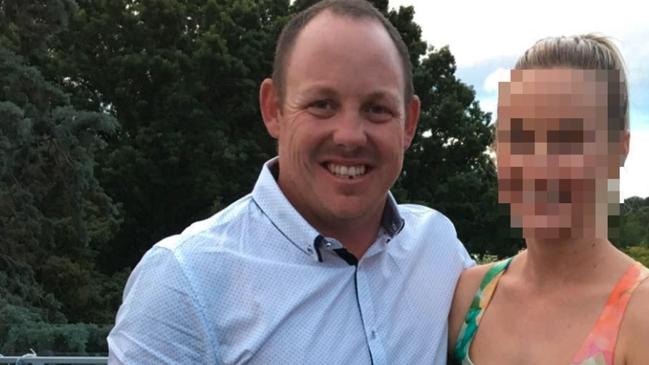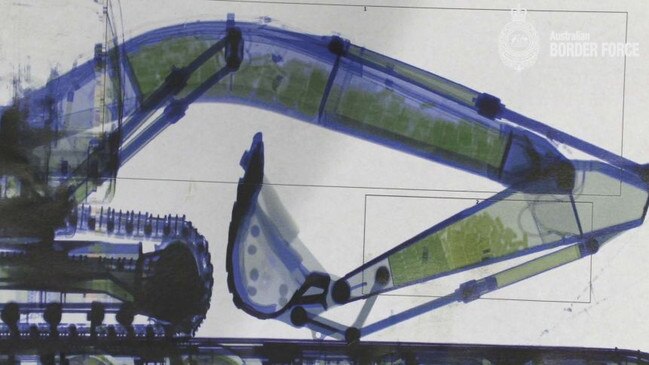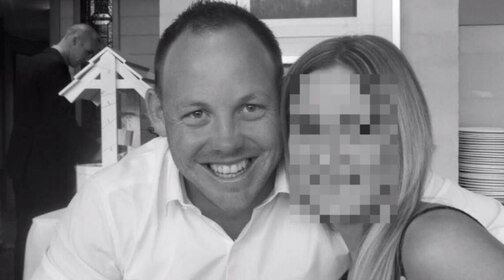Adam Hunter, Canberra: ‘Pablo Excavator’ jailed for attempting to smuggle cocaine
A broke salesman was recruited by a mystery ‘coffee man’ to help smuggle 384kg of cocaine hidden inside an excavator from Africa.
Macarthur
Don't miss out on the headlines from Macarthur. Followed categories will be added to My News.
A broke salesman known as “Pablo Excavator” who was recruited to help smuggle cocaine from South Africa hidden inside a digger has been sentenced to 12 years imprisonment.
Adam Phillip Hunter, 35, pleaded guilty in 2020 to attempting to import $140 million of cocaine from South Africa inside a second-hand excavator in 2019 and got the nickname online after the notorious Colombian drug kingpin Pablo Escobar.
Hunter, of Bungedore, appeared at Campbelltown District Court on Friday via AVL from Goulburn Correctional Centre for sentence.
Judge Andrew Colefax told the court Hunter was having financial troubles in 2018, with an overdue utilities bill, no funds left on his credit card and struggling to pay for basic living expenses.
A regular client of Hunter’s business, Bungendore Landscape supplies, became “aware” of the financial struggles and offered to help him, becoming known as the mysterious “coffee man”.

Hunter has not revealed the identity of the man, who he has known for years, to investigators out of fear for his own safety, the court heard.
The court heard Hunter played a “critical role” with the large-scale drug syndicate for months following his recruitment by “coffee man” in March or April 2019.
“Coffee man was, in some unexplained way, either part of or associated with a criminal syndicate that wished to import a significant amount of cocaine from South Africa to Australia,” Judge Colefax said.
“Through coffee man you were recruited into the scheme.”
PAYMENT TO “UNKNOWN” SOUTH AFRICAN ENTITY
Hunter transferred $50,000 to a corporate entity in South Africa connected to the syndicate for the purchase of a refurbished excavator and would organise to have it sent to Australia, the court heard.
“Although you only paid $50,000 there is some vague evidence such an excavator would be worth $130,000,” Judge Colefax told the court.
During his evidence, Hunter claimed he didn’t specifically ask what was in the excavator when he agreed to be involved but expected it would be drugs.
While he expected it to be illegal drugs, it didn’t “cross his mind the level of risk” he was taking, the court heard.
“I am satisfied at the time you made the payment of $50,000 to the South African corporation you were aware a significant amount of a border-controlled drug was going to be imported to Australia, but I am not satisfied you knew it would be cocaine,” Judge Colefax said.
While he knew nothing about the corporation in South Africa, Hunter transferred the money in two batches with no security.

“The payment of that money was submitted by your counsel to be an indicator of your naivety, the only rational inference is you trusted these criminals to keep their end of the bargain,” Judge Colefax said.
The judge said he found it hard to believe Hunter was “not remotely interested” in the quantity or quality of the drug, and he found it “troubling and very odd” he was prepared to send the money to people he did not know.
Judge Colefax told the court Hunter showed “unusual acts of trust” to people he knew were criminals, and complete strangers on another continent.
Hunter organised for the excavator to be shipped to Australia and received photos of the “bricks” of cocaine on his encrypted cipher phone before the digger arrived at his business.
POLICE INTERCEPTION
Hunter had no idea the police were onto him and had intercepted the machine when it arrived at Port Kembla, near Wollongong, and X-rayed it, finding the 1kg packages.
The businessowner made repeated calls to the port questioning why the excavator had not been delivered, with staff claiming it was being cleaned and had electrical problems, the court heard.
“Your counsel says this was an indicator of your naivety,” Judge Colefax said.
“You were given information where the packages were located and only then did you come to appreciate the quantity and nature of the packages.”
It was finally delivered to Hunter’s business in July 2019, and he found he could not deliver it to the syndicate to have the drugs removed, and asked friends to help him cut the excavator open and retrieve the drugs.
After two of his friends said no, Hunter and his best friend, who he claims had no idea what was in the packages, used an angle-grinder to cut the arm off the excavator and began to remove packages.

Judge Colefax said it is “implausible” Hunter was unable to remember if he told his best friend the packages contained cocaine.
Police arrived a few minutes later, revealing much of the operation was under police surveillance for some time.
“There was no cocaine to be unpacked because when the excavator arrived to Australia, the police were waiting for it,” Judge Colefax said.
Police found 348 plastic-wrapped 1kg blockers concealed in the hydraulic arm, found to be 332.1kg of cocaine.
Investigators deconstructed the cocaine and replaced it with drugs and another substance.
Judge Colefax told the court he is satisfied Hunter had “actual knowledge” the concealed packages contained some type of border-control drug”.
However, he acknowledged Hunter was not the “mastermind” of the operation”.
“After the drugs had been secured in the possession of the syndicate, you would have had no further role of distributing drugs into the community,” he said.
“You played a key role in the offending and there is no doubt it was for financial reward.”
SENTENCING
While prosecutors told the court Hunter should not receive his entire 25 per cent sentence reduction for an early guilty plea because he had not been honest with police, Judge Colefax gave a 20 per cent reduction.
Judge Colefax told the court Hunter comes from a “good family” and was raised in a “loving home”, now married with children.
“You have been a hard working man in your life and were held by high esteem by many in the community,” Judge Colefax said.
“Even with your offending, you have many references and you continue to have support by family and friends.”
Hunter was handed a sentence of 12 years and nine months, with a non-parole period of eight years and three months, backdated to his arrest on July 14, 2019.
He will be eligible for parole on October 13, 2027.




